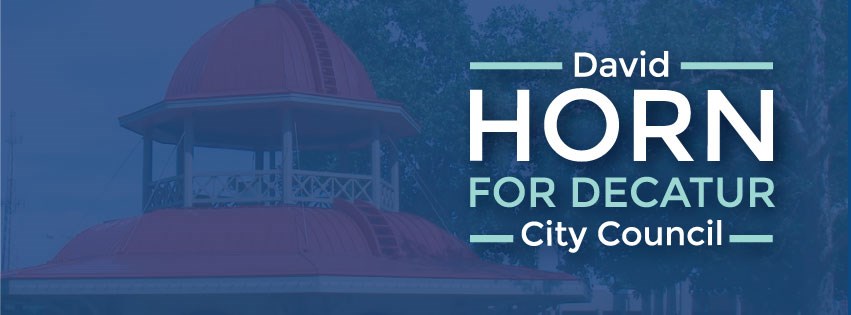
Hailstorm caused millions in damage to Decatur homes
In an era of global warming, Decatur residents can expect to see a significant increase in the number of extreme weather events, many of which will cause substantial property damage. One such extreme weather event took place on March 31, when a hailstorm brought 2-inch hail to parts of the city. Residents have spent millions replacing roofs, siding, gutters, downspouts, windows, and doors. As just one example, from April-June 2023, the city issued 132 roof permits with an estimated project cost of $2,436,827. Between April-June 2024, the city issued 948 roof permits (618% increase) at an estimated cost of $16,899,420 (593% increase).
A challenge for the city of Decatur is that many of our residents do not have the financial resources to pay for the damages caused by the intense storms associated with global warming. Decatur has a poverty rate of 19.5% and a median household income of $49,039. Thus, many people are struggling to pay their monthly bills let alone make home repairs caused by severe storms. For example, at its February 6, 2023 meeting, over a year prior to the hailstorm, the city council accepted a $400,000 grant for roof replacements in the urban core that included a $400,000 match from the city. The $800,000 was a good start in assisting residents, but not enough to meet our needs. In fact, 220 residents had requested roof replacements. Using an estimate of $10,000 per roof, $2.2 million was needed to replace roofs prior to the 2024 hailstorm. Furthermore, whether a residence experienced damage or not, home insurance premiums have risen considerably in recent years lowering discretionary income of Decatur residents.
DECATUR HAS CHALLENGES TO BECOMING CLIMATE RESILIENT
The city has additional challenges in becoming more climate resilient. While the city is methodically separating combined sanitary/stormwater sewers, the new stormwater sewers that are being built are not designed to handle the extreme storms. Thus, as once a century rainfall events occur in parts of the country at a far more frequent pace, city residents should anticipate stormwater flooding to continue regardless of the tens of millions of dollars being spent on sewer separation projects. It was only two years ago, that a heavy downpour resulted in significant flooding to several streets in downtown Decatur with multiple cars totaled while parked in downtown streets. As per the 2024 budget, the city has an estimated $25,650,000 in priority storm drainage capital projects. The city receives ~$1.6 million in revenue from its storm sewer fee.
LARGEST CONTRIBUTORS TO GLOBAL WARMING SHOULD PAY THE MOST TO MITIGATE IT
Sadly, but not surprisingly, the city’s greatest contributors to global warming (large companies that use significant amounts of natural gas) are among the most resistant to paying their equitable share to mitigate the impact caused by global warming. In Decatur, this is exemplified by a utility tax loophole in which entities who purchase natural gas from an entity other than Ameren do not have to pay the city’s 4.37% utility tax. In other words, those that burn the greatest amount of greenhouse gases pay less. This loophole has likely resulted in millions of dollars in lost revenue to the city, revenue that can be used to create a climate resilient city and aid residents that cannot afford to pay damage from extreme weather events that are occurring as climate change has worsened.
The Decatur City Council can and should close the utility tax loophole. The worst contributors to global warming should unequivocally pay proportionately to their impact and simply put, both the city of Decatur and far too many Decatur households do not have the financial resources needed to prepare for the extreme weather events our city is likely to face for years to come.
